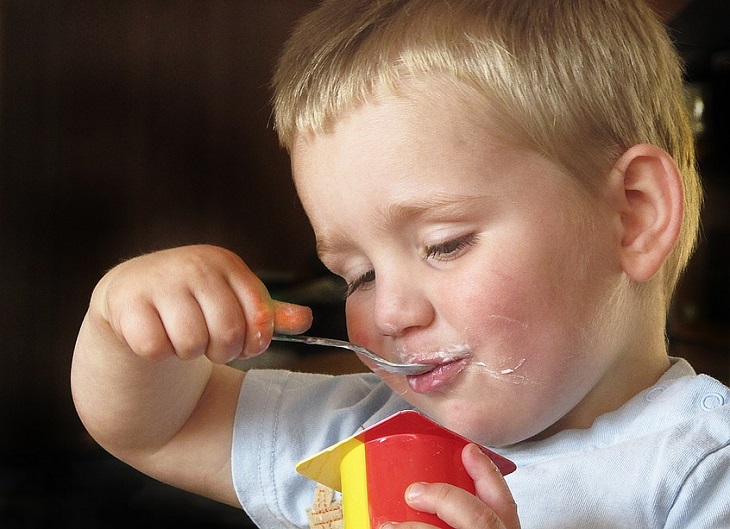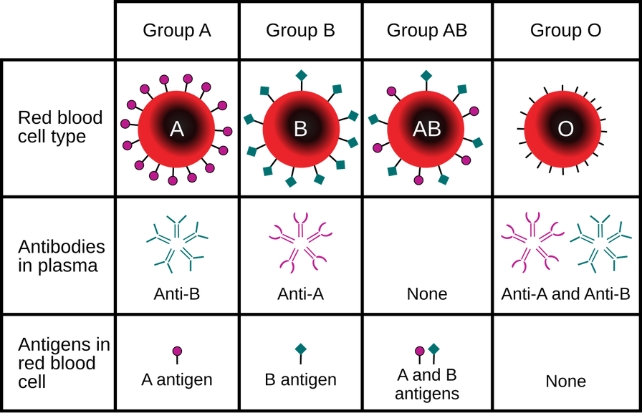important things we need to monitor regarding our children is their
nutrition – after all, today we know very well how much the things we
put in our mouths significantly affect our health, and this is even more
true for our children, who need a regular supply of essential nutrients
to develop properly. However, there are quite a few very common foods
that we simply don’t realize how harmful they are to our children in a
clear and immediate way. There are also many foods that we know are not
necessarily healthy, but we don’t suspect the damage they can cause to
children in the long term, and therefore, from time to time, we let them
eat these foods. To help you understand which foods you should actually
get your children to stop eating, or at the very least reduce their
consumption as much as possible, we’ve prepared a list of 8 such foods
that you should definitely know about.
1. Children’s Yogurts
Various children’s yogurts, offered in colorful packaging with cartoon
characters that appeal to little ones – are very popular food products,
and most of us also believe they have certain benefits for our children.
But the truth is, that’s not entirely accurate – a significant portion
of these products contain sugars, food colorings, and other ingredients
that, even if present in small amounts that may not necessarily harm
adults, can trigger allergies in your young children or, at the very
least, cause hyperactive and disruptive behavior, according to a study
conducted at the University of Southampton in the UK.

Therefore, instead of industrial children’s yogurts that may harm them,
prefer serving your children plain white yogurts without added sugar. To
adapt them to your children’s taste and encourage them to eat them, you
can sweeten them by adding a little honey (only if your children are
over one year old!) or chopped fruits.
2. Rice Puff Snacks
Various snacks and breakfast cereals made from rice puffs are certainly
common and widespread in the food market, and many children love eating
them. So you might be surprised to hear this, but according to the U.S.
Food and Drug Administration (FDA), consuming these products may expose
your children to high levels of inorganic arsenic – a dangerous compound
that is not healthy for humans at all. Since we often give our children
cereals and snacks based on rice puffs, their rice consumption is three
times higher than that of adults, which can, of course, have a harmful
impact on their development and learning abilities.
healthy snacks and breakfast cereals you give your children at home (you
can do this together with them) using healthy ingredients that don’t
contain arsenic.
3. Processed Meat Products
Admittedly, the presence of processed meat products on this list
shouldn’t surprise most of you, who likely know that these industrial
products have long been considered unhealthy and not nutritious in any
way. However, many parents, in moments of weakness or when they don’t
have time to prepare a proper meal, give their children such food
products, like hamburgers, hot dogs, nuggets, and the like. If you do
this to some extent, you should know that according to a study conducted
by the American Cancer Society, consuming 50 grams of processed meat
per day increases the risk of developing colorectal cancer by 18% – so
the harm to your children may not always be immediate, but it can be
significant in their adulthood.
The best solution for this issue is to let your children consume fish
dishes – even industrial ones, as their impact is still less harmful
than that of processed meat products. Of course, the most recommended
way to address this is to prepare delicious and nutritious fish dishes
for your children yourself.
4. Industrial Ice Creams
On hot summer days, many bring home industrial ice creams in
family-sized packages from the supermarket, which kids love to devour as
much as they want (or until they’re told to stop and the package is
taken away). What many of you probably don’t know is that many of these
products contain substances called “emulsifiers,” which a 2015 study
showed interfere with the normal functioning of friendly gut bacteria,
leading to obesity – a particularly dangerous phenomenon for children.
Therefore, instead of the industrial ice creams you buy at the
supermarket, the recommendation here is to turn the preparation of this
sweet treat into a homemade activity you can do with your children.
5. Potato Chips
Potato chips, sold in various packages, sizes, and colors, are
undoubtedly a salty delight for every child (and quite a few adults),
but it’s clear they are not a healthy choice for your children in any
way. Although they are made from potatoes – a vegetable with some health
benefits – they are also rich in less healthy ingredients and packed
with fats, calories, salt, and other things children should avoid, as
they are even more harmful to them than to adults. From increased blood
pressure that could be fatal later in life, to obesity and kidney stones
– you have every reason to limit or completely eliminate your
children’s consumption of these industrial snacks.
As with most cases we’ve presented here – if your children love potato
chips, the solution isn’t to deny them completely but to know how to
prepare them at home in the right way, giving them the benefits of the
snack while sparing them its negative effects.
6. Diet Carbonated Drinks
Many of us are already aware of the dangers of excessive sugar
consumption, and to avoid it while still enjoying our favorite
carbonated drinks, we switch to their diet versions, which have gained
significant popularity in recent years, and we also let our children
drink them to reduce their sugar intake. But the truth is that the
artificial sweeteners found in large quantities in these diet carbonated
drinks don’t have significant advantages over sugar, and they may even
cause more harm to you and your children. For example, a study published
in 2018 found that aspartame – a common artificial sweetener in
industrial diet drinks – restricts essential enzymes in the body that
prevent obesity and diabetes, so their consumption by children who drink
these beverages without restriction can cause physical harm.
All you need to do to solve this problem while still providing your
children with sweet drinks is to let them drink as much freshly
squeezed, natural fruit juice as possible.
7. Microwave Popcorn Snacks
Popcorn in a paper bag, ready in 2-3 minutes after heating in the
microwave, is a convenient solution for many of us who want to provide
our children with a tasty, salty snack for the hours they’re glued to
the TV. But despite the convenience and ease for us as parents, you
should know that some of these products’ paper bags contain various
harmful chemicals. For example, some paper bags contain perfluorinated
compounds, a substance that, when exposed to high heat, can cause the
bag to release substances into the food that may harm children’s
development and are even linked to the development of certain types of
cancer in the future.
Therefore, despite it being a bit more effort, revert to the traditional
method of preparing popcorn – by heating corn kernels in a pot with a
little olive oil. It takes only 5-7 minutes, it’s just as delicious or
even more so, and it will harm your children much less than the
microwave version of the snack.
8. Instant Noodles
Another type of food you should prevent your children from eating, as it
won’t benefit them in any way, is instant noodles – the kind where you
“pour hot water, stir, and eat.” These products often contain more
sodium than the recommended daily intake for a child; furthermore, the
noodles in these products are made from white flour and lack fiber or
any other nutritional value – so while these meals may fill your
children, they certainly won’t nourish them or provide the essential
nutrients they so desperately need.
or dinner, it’s recommended to prepare a large batch of whole-wheat
pasta for the week in advance, so they can consume it whenever they need
a carbohydrate boost. If your children struggle to adapt to the texture
of whole-wheat pasta, try mixing regular white flour pasta with
whole-wheat pasta at first until they get used to it.










